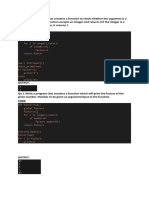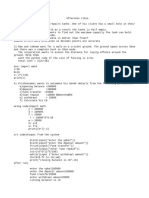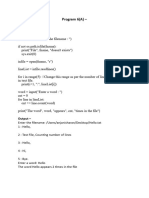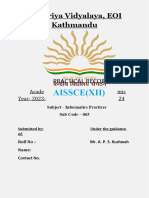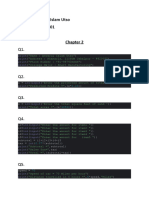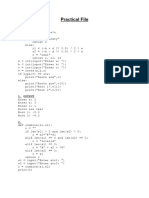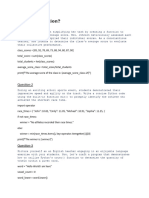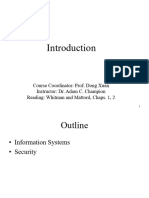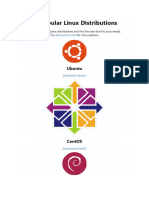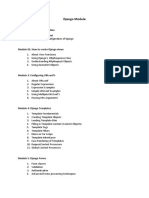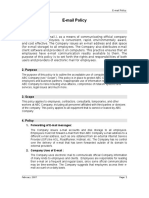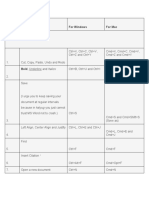0% found this document useful (0 votes)
148 views4 pagesBinder - Bind (Globals ) Print 'Setup Complete.'
The document defines and demonstrates functions in Python. It defines functions to add a number, calculate pay based on hours worked and tax bracket, and print a greeting without arguments or return. It calls the functions and prints their output to demonstrate their behavior. Variables are set and used as function arguments and to store return values.
Uploaded by
Hibba TabeerCopyright
© © All Rights Reserved
We take content rights seriously. If you suspect this is your content, claim it here.
Available Formats
Download as DOCX, PDF, TXT or read online on Scribd
0% found this document useful (0 votes)
148 views4 pagesBinder - Bind (Globals ) Print 'Setup Complete.'
The document defines and demonstrates functions in Python. It defines functions to add a number, calculate pay based on hours worked and tax bracket, and print a greeting without arguments or return. It calls the functions and prints their output to demonstrate their behavior. Variables are set and used as function arguments and to store return values.
Uploaded by
Hibba TabeerCopyright
© © All Rights Reserved
We take content rights seriously. If you suspect this is your content, claim it here.
Available Formats
Download as DOCX, PDF, TXT or read online on Scribd
/ 4


